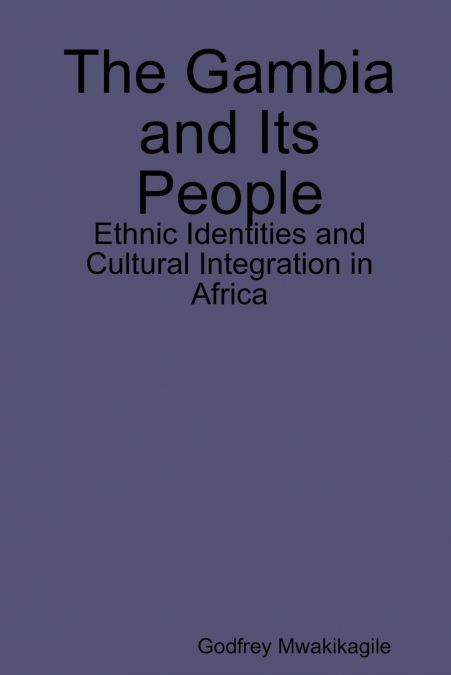
Godfrey Mwakikagile
The author looks at The Gambia and its people and how this African country has been able to achieve cultural integration on a national level. He also provides a comprehensive picture of the country's nation identity which is a fusion of the multiple identities of the various ethno-cultural groups which collectively constitute the Gambian nation. The work is a study of ethnic cultures and identities in the Gambian context whose relevance is continental in scope. Ethnicity is the primary identity in most African countries. It transcends national identity. Understanding its role in the lives of most Africans also helps us to understand African countries with all their complexities which collectively define the continent. In spite of its ethnic and cultural diversity, The Gambia is one of the most united countries in Africa. It's also one of the most peaceful, enjoying harmonious relations among its various ethnic groups unlike many African countries where instability and civil strife caused by ethnic rivalries - fuelled by unscrupulous politicians - is the defining feature of national life. The ability of the various ethnic groups in The Gambia to interact harmoniously has led to cultural integration on a scale unheard of in most African countries. While it's true that different tribal cultures do exist in The Gambia, it's equally true that there also exists a national culture which unites the country's various ethnic groups into a cohesive whole transcending ethno-regional loyalties. As an ethnically diverse nation, The Gambia is a microcosm of Africa: a continent whose countries are characterised by ethnic and cultural diversity where rivalries along tribal and regional lines are the norm rather than the exception. But The Gambia also is a good example of what many African countries have yet to be: united, with a solid national identity that has not been fractured or fragmented by ethnic conflicts. Cultural integration on a national scale remains an elusive goal in most African countries. But if there are a few countries on the continent which have achieved cultural integration, The Gambia is one them. It has, in fact, even achieved cultural fusion in some respects as we learn from this work which focuses on Africa's smallest country and its people. The work is intended to be a general introduction and may help members of the general public learn some basic facts about The Gambia which, because of its strategic location and other attributes, has earned distinction as a gateway to West Africa. People going to The Gambia may find this work to be useful. Students in various academic fields may also benefit from the interdisciplinary approach taken by the author in his study of this African country. It's comprehensive enough as an introductory work on the people of The Gambia and their ethnic identities and cultures.